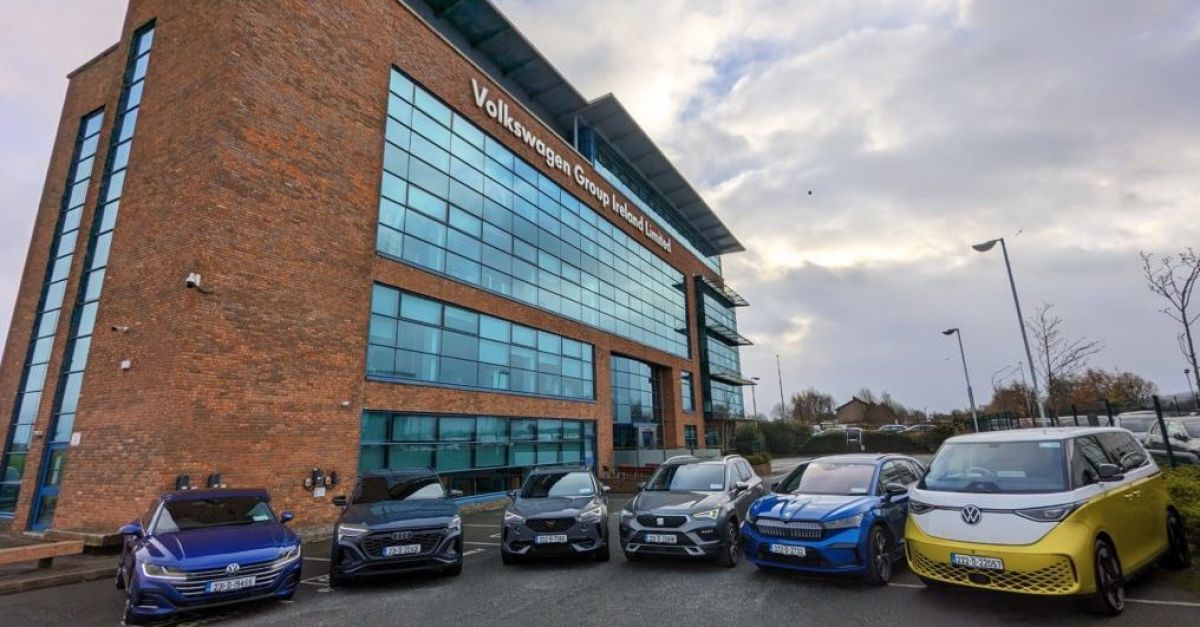Bussiness
VW Group to sell cars directly to Irish customers for all its brands from 2026 | BreakingNews.ie

Volkswagen Group is to sell its new cars directly online to Irish customers from June 2026 in a move that will see its retailers become responsible for new car handovers rather than the sales process.
VW Group Ireland will sell new vehicles directly online to customers across all its six brands – Volkswagen Passenger Cars, Skoda, Seat, Cupra, Audi and Volkswagen Commercial Vehicles.
The change will end the Group’s current contracts with its Irish dealers. The Irish Times understands that dealers across the Group’s brands were informed on Monday that their current contracts were being terminated and that new contracts will be issued, introducing the new agency sales model.
VW Group Ireland has yet to indicate how many of its current dealers will be offered the new contracts and how it will pay dealers who sign up to the new sales model, where they are paid a set fee for managing the handover process for new cars to customers rather than a profit margin on the sale.
The Volkswagen car brand currently has 39 sales outlets in the Republic, Skoda has 27, Seat and Cupra combined have 24, Audi 11 and VW Commercials 21. Many of the Group’s dealers would hold franchises for more than one of the brands.
From a customer perspective, VW says buyers across all its brands can either choose and purchase their car entirely online or go to a dealership for a physical experience of the car.
However, it is expected that VW Group will not only manage the new car sale, but also set the initial trade-in value on any deals.
Ireland is one of the first markets for VW to adopt the new direct digital sales – or agency – model. The move is in line with other brands which have rolled out similar digital sales in other States and several car makers have committed to move to direct digital sales across all markets in the future.
Under the current franchised model, dealers are independent businesses, buying their stock of new cars at wholesale prices from importers, who bring them into the State from the various factories. Some of those importers are themselves independent, locally owned companies that have built up relationships with big car manufacturers over the years. Others are local offices of those car makers.
Having bought their stock of new cars, the dealers then sell them on to the consumer, adding on a profit margin. That profit margin can often be used to offer consumers a discount.
Under an agency set-up, the dealer no longer buys their stock of new cars from the car maker, and – technically – the customer is not buying the car from the dealer any more. Instead, the car is bought directly from the company that made it. The dealer, from whom the customer will continue to collect the new car and to whom they will return for servicing and repairs, is now an agent, doing the physical handover of the car for a flat fee rather than a variable profit margin.
Tesla has long operated outside the franchised dealer model, as has Polestar. BMW has said it will go fully agency for all its sales by 2026.
Stellantis, the group that owns the Peugeot, Opel, Citroen, Fiat and Jeep brands, also plans to move its European sales operations to the agency model by 2027. However, others such as Toyota, Lexus, and Mercedes have said they are sticking with the franchised dealer model.
Alicia O’Connor, VW Group Ireland director of sales transformation and customer experience, said: “Irish customers are comfortable buying online. However, many still want the tactile experience of going to a showroom, getting into a vehicle and taking it for a test drive.” She said the new sales model would offer customers the best of both worlds.










